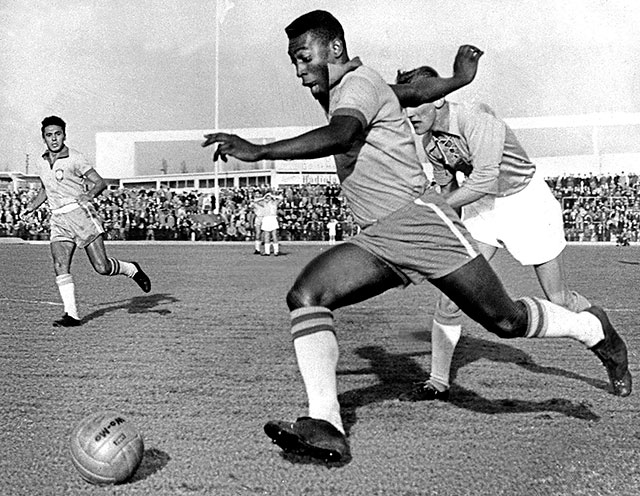SAO PAULO — Back in 1970, the watchword among those opposed to the reigning dictatorship was to cheer against the Brazilian soccer team at the World Cup in Mexico.
Of course, the whole plan came crashing down with the first successful attack led by Pelé, Rivelino and the others. Every goal from the Canarinhos (little canaries, one of the national team's nicknames) was duly celebrated, and when the team won Brazil's third World Cup title, the whole nation let itself go and came together in one big party.
This can be explained by the fact that Braaasilll!, the country of soccer, is different from the political entity. In the former, victory depends on talent, and it implies playing by the rules. But in the official country, there is room for all sorts of short cuts and trespassing.
Any attempt to sabotage Braaasilll in order to fight against the authority is contrary to our image and to the values that could transform Brazil into a developed country. In the game, the rules are the same for everybody, and there are no exceptions. Skills are a basic requirement, and the individual is celebrated. It is as important as the group, but in that case, individuality thrives without letting individualism prevail.
The game has a great educative function. It teaches respect for the rules and introduces the idea of limits, essential in citizenship. It is a powerful asset in the upbringing of children, as in its context, the law always applies and whoever fails to abide by it is always sanctioned. Indirectly, the game thus teaches us also to say no and to accept rejection.

Soccer legend Pelé in 1960 — Photo: Nationalencyclopedin
In that sense, Brazil's anti-World Cup demonstrations go against the children, and it is good to remember that although the money spent on the event surpasses what was initially planned, it represents just one month's worth of the country's education budget. This figure alone should end all opposition to the Copa.
Besides, the game also exists to put conflicts on hold. In Olympia, where the Olympic Games were born, all hostilities, including ongoing wars, were suspended. Any action that would violate the truce was considered a crime and was duly punished.
We can of course find that many things are wrong in this country, but tackling the "status quo" by opposing the World Cup, on top of being useless, is masochistic. As football legend and current President of the UEFA Michel Platini said, it is as important for fans to come to the World Cup in Brazil as it is for Muslims to go to Mecca. Breaking the truce with political demonstrations would be a form of barbarism.
Now is the time to let our great popular culture event take place and to spread out the joy we have in ourselves, and which the rest of the world needs as well.
*Betty Milan, 69, is a psychoanalyst and author of many books, including O País da Bola (The Country of Soccer).





